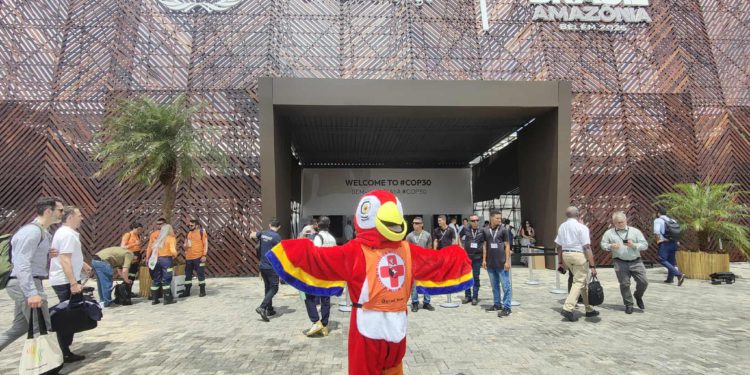As climate change continues to threaten agriculture, food systems, and rural livelihoods, COP30 in Belém dedicated an entire day to addressing these intertwined challenges. The focus remained on food security, land restoration, women’s empowerment, family farming, the rights of Afro-descendant communities, and sustainable tourism. The central message of the day was clear: restoring land, empowering women, and adopting science-based solutions are essential to safeguard the future of global food systems.
Belém—situated at the heart of the Amazon, one of the world’s largest and most critical forest ecosystems—now stands at a pivotal moment in global climate diplomacy. Among the ongoing negotiations, November 19 became particularly significant for COP30. As climate impacts disrupt food systems, threaten agricultural sustainability, and disproportionately affect women and indigenous communities, Belém’s conference venues came alive with high-level discussions focused on food security, gender equality, land restoration, and agriculture-based livelihoods. Despite concerns over slow progress in negotiations, hope remains alive. Delegates insist that meaningful solutions are essential if the world is to remain habitable, and this urgency is shaping every conversation.
The day began with a high-level session titled “Women’s Voices That Guide the Future”, where women leaders from across the globe presented their experiences. Women from rural regions of Africa, Asia, and Latin America—those who bear the brunt of climate impacts—shared how they are tackling water shortages, cultivating new salt-tolerant crops, innovating livestock management, and blending indigenous knowledge with modern science to create resilient solutions. Their testimonies reinforced the recognition of women’s leadership as a central pillar of global climate policy.
In this context, Brazil formally introduced its national strategy, “Protocol for Women and Girls in Climate Emergencies.” The policy outlines comprehensive measures for ensuring safety, participation, leadership, and support for women and girls during climate-related disasters. Seen as a milestone for gender-responsive climate governance, the protocol is emerging as a key component of the COP30 Action Agenda.
One of the day’s most anticipated events was the launch of ROUSE—Resilient Agriculture Investments for Net-Zero Land Degradation. Scientists revealed alarming data: millions of hectares of land are becoming barren every year, pushing food systems toward unprecedented crisis. Increasing land degradation is driving up food prices, deepening farmer losses, and destabilizing rural livelihoods. ROUSE aims to expand sustainable farming practices, restore degraded land, enhance carbon retention in soils, and increase financial investment in rural community resilience.
Before midday, the session “Scaling Up Practical Solutions for Resilient Agri-Food Systems” announced several important global initiatives. The BCNE Agriculture Fellowship unveiled its new action plan for 2016–2028, while a global “Fertilizer Call to Action” was introduced to improve efficiency in fertilizer use. Additionally, the release of the 2025 CRDF analysis and new impact-support commitments under the Zamana Government’s FASTER Partnership are expected to significantly enhance greenhouse gas reduction in agriculture, increase production efficiency, and strengthen climate-resilient food systems. Another key session—“Integrating Women in the Fight Against the Climate Crisis”—highlighted the need to more deeply embed women’s leadership within climate governance. Alongside Brazil’s newly announced protocol, experts emphasized the urgency of institutionalizing women’s voices in policymaking, arguing that without strong female leadership, transforming global food systems will remain incomplete.
In the afternoon, the Global Climate Action High-Level Event delivered one of the day’s most powerful messages. Leaders declared that commitments alone are no longer enough—tangible outcomes are urgently needed. They issued a unified call, “Mutirão”—a Brazilian term symbolizing collective action—emphasizing that governments, scientists, farmers, civil society, and global institutions must work together more rapidly. Leaders warned that without immediate measures to restore land, adapt food production, strengthen women’s leadership, protect Afro-descendant rights, and expand science-driven solutions, future generations will face severe food and environmental crises.
By the end of the day, one message rang loud across Belém: COP30 has reached its most intense phase of negotiation. While disagreements persist, all parties remain committed to finding a workable solution to protect the planet.




















